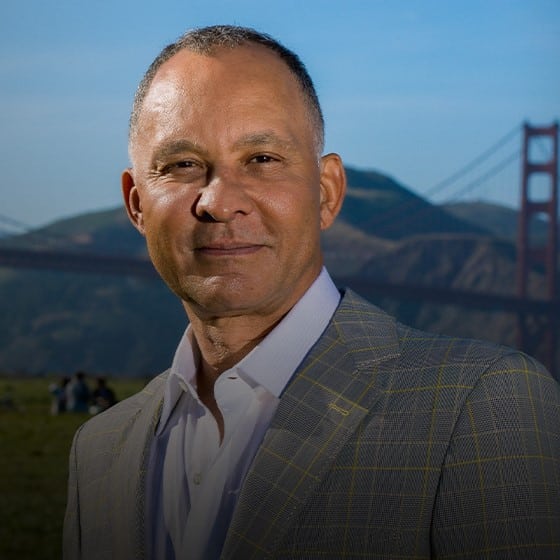Could Your Diet Cause Gynecomastia?

If you suffer from gynecomastia, commonly known as “man boobs,” you understand how frustrating the condition can be. You cannot escape the feeling that everyone is taking notice of your unmanly chest contour, even if that is not the case.
As a result of the appearance of your chest, you may be embarrassed to remove your shirt upon entering a public beach or gym locker room. You may refrain from wearing certain types of clothing, despite being wholly clothed, due to the fear of showing your puffy nipples and enlarged chest. Traditional chest sculpting exercises exacerbate the problem and are ineffective in treating man boobs. What are your options? Learn more about the condition of gynecomastia surgery by calling Dr. Delgado at (415-898-4161).
A guide to the anti-estrogen diet for men: What to eat and what not to eat
Hormones such as estrogen and testosterone are found naturally in the bodies of both males and females. Recent research indicates that some foods are capable of influencing these hormone levels.
Hormones are chemical messengers in the body. They are crucial for maintaining libido, mood, health, and fertility, among many other functions.
While estrogen has sometimes been considered a “female hormone,” it is produced by males and females. Elevated estrogen values have been linked to men’s specific health problems, such as gynecomastia or “man boobs.”
This article explores foods that may raise or lower estrogen in the body and the evidence supporting these claims.
Males with high estrogen levels
Male and female sex hormones differ because estrogen is the primary female hormone, and testosterone is the primary male hormone. Although men also produce estrogen, it is in smaller amounts. The key is to avoid hormonal imbalances.
Male reproductive health is influenced by estrogen. Estrogen impacts sexual drive and erectile dysfunction in men. It also affects sperm production and bone health.
Males, however, may experience problems if too much estrogen is consumed. Some symptoms of excessive estrogen can include:
- An enlarged breast tissue (gynecomastia or man boobs),i.e., excess breast tissue.
- Erectile dysfunction is often due to suppression of testosterone production
- Problems with reproduction
Moreover, a 2016 study conducted by trusted Sources has also linked high estrogen levels with depression in males due to a hormonal imbalance between estrogen and testosterone. Therefore, hormonal balance is critical for total body mental and physical health.
To maintain optimal health, estrogen and testosterone must be in balance. If either hormone is present in excess or insufficient amounts, health problems can arise.
Hypogonadism, or low testosterone levels in men, is a common health concern associated with aging, and testosterone replacement therapy is sometimes required. Low sperm counts, erection issues, and a reduced sexual drive are some of its symptoms. There is a myth that too much estrogen is the cause of low testosterone, but this is not true. Estrogen and testosterone are not antagonistic.
Can males reduce their estrogen levels?
Some studies have suggested that specific foods may raise or lower estrogen levels. However, it is unclear whether these foods can address the health effects of excess estrogen. However, it is clear that certain foods are estrogen-like or phytoestrogens in their composition and can mimic the effect of estrogen. The same is true for testosterone in the diet. Therefore, hormonal balance can be affected. Whether or not these tiny changes can affect the overall body’s physical dynamics is the question.
Food and Oils that Increase the Estrogen Level
Breast tissue development can be stimulated by estrogen and estrogen-like compounds. Various forms of these compounds are found in the environment. If you have concerns about gynecomastia, you may wish to reduce your intake of these compounds.
Soy products like soy milk contain a high level of isoflavones, and phytoestrogens. Isoflavones mimic the effects of estrogen, but they are much less potent. There has been evidence that soybean isoflavones attach to estrogen receptors and can produce a slight estrogenic effect or even anti-estrogenic activity.
Lavender oil Tea tree oil – Contains estrogenic and testosterone-suppressing properties. Because of this, they interfere with the development of masculine characteristics. These essential oils are also used in personal hygiene, household cleaning, and aromatherapy to substitute for medical treatment. Many consumer products contain lavender and tea tree oil, including soaps, lotions, shampoos, etc.
- Red wine, nuts, fruits, and flax seeds – Research has indicated that these foods contain phytochemicals such as resveratrol, which are similar to estrogen in their effects on the body.
The Top 6 foods that cause Gynecomastia.
The top foods that cause man breasts are soy products, beetroot, dairy products, shrimp, strawberries, frozen meat, beer, canned, and deep-fried food. These foods increase the production of estrogens and can suppress testosterone production. To reduce man boobs, you should eat foods that aid in increasing testosterone levels, such as eggs, oysters, asparagus, figs, nuts, brown rice, salmon, and avocados.
FAQ’s
Do phytoestrogens or estrogen-like products affect males?
A limited number of studies have been devoted to the effects of phytoestrogens on human reproductive health. These investigations indicate that adult exposure to phytoestrogens has no impact on pituitary hormone concentrations and semen parameters but possibly lowers males’ testosterone concentrations.
Conclusion
A healthy diet is essential for total body health but can also manage hormonal changes. There are estrogen-rich foods that may contribute to the development of man boobs, but this component, even though the present, is probably small. If you find that your enlarged male breasts are not going away, plastic surgery will be your best option. Dr. Delgado is a board-certified plastic surgeon who has treated thousands of men with this condition. If you would like a virtual consultation or discuss your options, call 415-898-4161.
